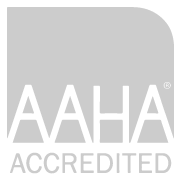
Manlius Spay & Neuter Patient Care
Comprehensive Anesthesia, Surgery, and Pain Management
The general recommendation is to perform dog and cat spays and neuters at 6 months of age, with variations for different dog breeds. In human years, a cat or dog at 6 months of age is equivalent to a 10-year-old child.
Click here to learn more about our spay and neuter services.
Essential Questions to Ask Before Your Pet's Surgery:
- Is your pet treated gently and patiently on arrival?
- Is the hospital clean?
- Was proper blood screening tests performed before anesthesia and surgery?
- Will there be a trained, licensed veterinary technician dedicated to monitoring and caring for your young pet during the pre-anesthetic medication administration, during anesthesia, and until your pet is fully recovered from anesthesia after surgery?
- Are medications being given before anesthesia to decrease your young pet's anxiety, relax it before surgery, and decrease the amount of anesthesia needed?
- Will an intravenous (IV) catheter be placed before anesthesia?
- If no IV catheter is placed, how is rapid access to the blood supply going to happen to administer medications and supportive care in case of an emergency (when seconds count)? Or if there are any complications or unexpected reactions to anesthesia, medications or surgery?
- Are IV fluids administered for blood pressure and circulatory support during surgery and until your pet is fully recovered?
- Are your pet's blood oxygen levels being monitored during anesthesia?
- Are your pet's respiratory carbon dioxide levels being monitored during anesthesia?
- Is blood pressure being monitored during anesthesia?
- What pain medication is given and when?
- Are pain medications being used before, during and after surgery?
- Gas anesthesia causes relaxation and stops movement, but it does not stop nerves from sensing pain!
- Is your pet going home on pain medication?
- Just because young animals do not outwardly demonstrate easily recognized signs of pain does not mean that they do not hurt. If a procedure is painful for us, it is painful for them!
- Are any questions or concerns you have about the procedure or the hospital stay being answered satisfactorily?
At Compassionate Care Veterinary Hospital of Manlius, P.C.,all patients undergoing planned anesthesia and surgical procedures. Contact our hospital by filling out our online form or calling us at (315) 508-7884.
Our Commitment to Your Pet's Care Includes:
- All pets are treated with compassion to minimize their stress.
- Our hospital is a well maintained, state-of-the-art, patient-centered medical facility.
- Your pet's veterinarian and the health care team assigned to your pet are personally responsible for your pet's comfort and well-being.
- Sedatives, medications for pain, and anti-anxiety medications are used before anesthesia and surgery.
- All anesthesia and surgical patients have IV catheters placed before general anesthesia.
- They all receive IV fluids before the induction of anesthesia, during anesthesia and until they are fully recovered from anesthesia.
- Pain medications and local nerve blocks are used before the potential painful procedure has started to minimize our young patients' discomfort.
- A licensed, trained veterinary technician will be with your pet throughout anesthesia, surgery and recovery.
- Your pet's blood pressure, blood oxygen and respiratory carbon dioxide levels are only some of the vital information monitored during any anesthetic procedure.
- We will strive to answer all your questions and provide detailed discharge instructions for your pet's care after surgery.
- Pain medication is dispensed to maintain your pet's comfort at home.
- Our advanced anesthetic methods, surgical experience and advanced pain management program help achieve our goal of your pet's comfort and well-being during its hospitalization for anesthesia and surgery.
If you have any additional questions or concerns, please CONTACT OUR HOSPITAL at (315) 508-7884 for additional information.

What Makes Us Stand Out?
-
High-Quality Veterinary Medical Care Since 2008
-
Involved Caring For & Educating Our Community
-
Rave Reviews from Our Clients
-
Educational Approach to Pet Care
-
Continuity of Care
-
Conscientious & Comprehensive Exams





